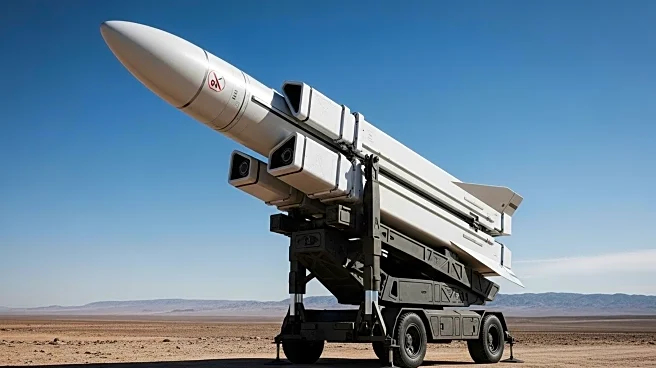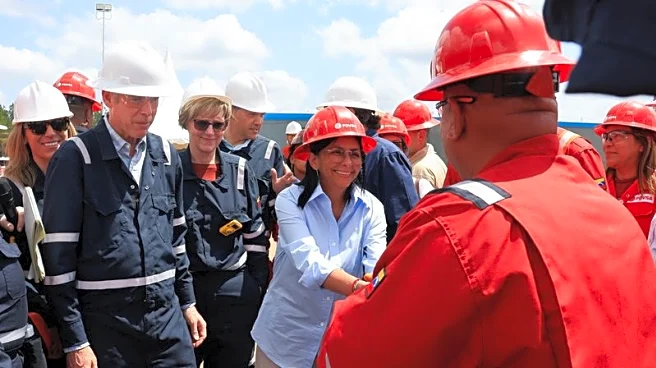What's Happening?
The Pakistan Army has successfully conducted a training launch of its newly developed Fatah-IV surface-to-surface cruise missile. The launch was announced by the Inter-Services Public Relations (ISPR) on September 30, marking the official confirmation of the missile's existence. The Fatah-IV missile, equipped with advanced avionics and navigational aids, is part of the newly established Army Rocket Force Command. It is designed to evade enemy missile defense systems and engage targets with high precision, enhancing the reach and lethality of Pakistan's conventional missile systems.
Why It's Important?
The successful test of the Fatah-IV missile signifies a significant advancement in Pakistan's military capabilities, particularly in missile technology. This development could alter the strategic balance in the region, potentially impacting defense policies and military strategies of neighboring countries. The missile's ability to evade defense systems and its precision targeting capabilities enhance Pakistan's deterrence posture, which is crucial given the geopolitical tensions in South Asia. The induction of the Fatah-IV into the Army Rocket Force Command reflects Pakistan's commitment to modernizing its military arsenal.
What's Next?
Following the successful test launch, the Fatah-IV missile will likely undergo further evaluations and integration into Pakistan's defense strategy. The Army Rocket Force Command may conduct additional tests to refine the missile's capabilities and ensure operational readiness. The development could prompt neighboring countries to reassess their defense strategies and consider countermeasures. The international community may closely monitor these developments, given the potential implications for regional security and stability.
Beyond the Headlines
The introduction of the Fatah-IV missile raises questions about the ethical and strategic implications of advanced missile technology in regional conflicts. The missile's capabilities could influence diplomatic relations and defense policies, potentially leading to an arms race in South Asia. The focus on missile development highlights the ongoing prioritization of military advancements over diplomatic solutions in addressing regional tensions.










